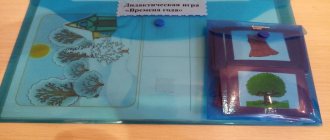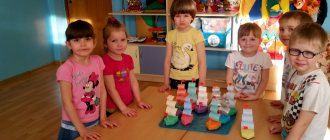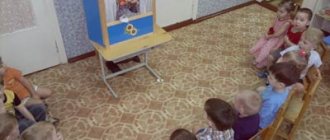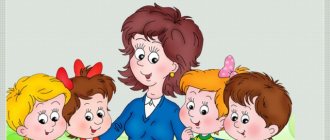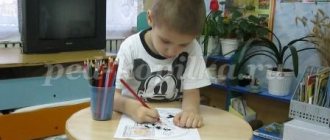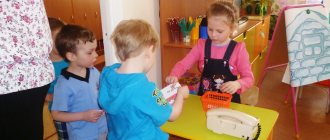Educational program for parents
Articulation gymnastics for children 3-18 months Children with speech disorders
Dysgraphia
- mechanism and forms of dysgraphia, advice to parents, exercises to help overcome dysgraphia
How to Help Your Child Remember to Spell Dictionary Words
Dyslexia
- forms and causes of dyslexia, basic techniques and methods of working with dyslexic children, texts of visual dictations, tests to determine dyslexia for adults.
Dysarthria (detail)
- causes of dysarthria, main directions of correctional work, exercises, techniques, where to go for help
Dysarthria, erased form of dysarthria (briefly)
Hyperactivity and disinhibition
Alalia, ONR, ZRR, MDD
Stuttering
- causes and symptoms of stuttering, methods of overcoming stuttering, rules and exercises, practical advice, where to go for help
Mutism
- a little history, clinical variants of mutism, treatment of mutism, recommendations on where to go for help
Rhinolalia
- forms of rhinolalia, elimination of rhinolalia, gymnastics, exercises, where to go for help
Bradylalia
- symptoms, methods of speech therapy, recommended exercises, where to go for help
How are Caesar babies different from naturally born children?
How to get rid of interdental sounds?
Consultation for teachers “Five-minute speech therapy sessions in the work of a teacher”
Author: Trotsenko Tatyana Petrovna
Consultation for teachers
“Speech therapy five-minute sessions during routine moments of a teacher’s work”
Target:
involving educators and parents in the correctional work of a speech therapist.
Objectives
: - to introduce educators and parents to games that promote the development of children's auditory attention and memory, phonemic hearing;
— show educators and parents ways to expand children’s active vocabulary; — show techniques for developing the prosodic side of speech. Everyone has long known the proverb “Alone in the field is no warrior.” These words are the best fit for the work of a speech therapist. Because without the help of parents and educators, his work is reduced to zero. Five-minute speech therapy sessions, which the teacher will conduct throughout the day, will be of great help to the speech therapist. These can be games to develop auditory attention and memory. Such games are useful not only for children with speech disorders, but also for children with normal speech development. Here are some examples of such games. Game "Forbidden Word"
.
Rules of the game: the adult asks the child questions. The child can answer the questions in any way he likes, but one word is chosen as forbidden. As a rule, this is either the word “YES” or the word “NO”. It is necessary to ask questions at a fairly fast pace so that the child can concentrate better. Another version of the game for the development of auditory attention is the game “Big - Small”
.
An adult names different objects. If the object is small, the child should bring his palms together. If the object is large, he should spread his arms to the sides. While playing this game, the auditory and motor analyzers work simultaneously. Game "The Longest Chain"
.
A good methodological technique for conducting this game would be to introduce an element of competition. Well, the victory itself is directly rewarded with a symbolic prize. Children sit in a circle. An adult starts the game by naming any object. The next player repeats this word and adds his own. And this is how each subsequent player acts. The result should be a long chain of words. The player who accurately repeats the chain wins. Currently, in speech therapy work, we are increasingly encountering children whose innervation of the speech apparatus is disturbed; in other words, the paths along which nerve impulses pass from the cerebral cortex to the organs of articulation are disturbed. There are more and more such children every year. These are children who have “porridge in their mouth.” In such children, not only sound pronunciation is impaired, but also the prosodic side of speech - intonation, pitch and strength of voice, timbre. Games for the development of prosody are very useful for such children. It would be very useful for teachers to help them learn tongue twisters, which children can recite with different intonations - interrogative, exclamatory, with different voice strengths - loudly and in a whisper. They can also be told in different moods - sad, cheerful, angry, scared, reinforcing the story with facial expressions. One of the main points in the work of a speech therapist is the development of phonemic hearing in children, without which it is impossible to completely correct the child’s sound pronunciation. To develop phonemic awareness, I suggest teachers play the game “Broken Phone”
.
A group of children can be divided into two teams. Team members stand behind each other. The last players of each team are shown one picture of an object. These players in a chain whisper this word to the neighboring player. The team whose last player correctly names the word wins. You can check this by showing the proposed picture. It is useful to suggest words that differ from each other by one sound. For example, a goat is a braid, a mouse is a bear. Laughter at the finish line is guaranteed. The second version
of this game is familiar to all of us from childhood.
Children sit or stand in a circle. The adult says the word. The next player must name a word that ends with the last sound of the previous word (nose - juice - braid, etc.). In this game, it is acceptable if the child calls the word “cucumber” to the sound [A]. There is no mistake in this, because... The child does not yet know the rules for spelling dictionary words. Even at school, when conducting a phonetic analysis of this word, the first sound will be exactly [A]. A game in which you need to come up with as many words as possible for a given sound will be useful. For each word the child receives a chip. The one who has the most such chips wins. Another game, “Catch a word with a given sound,”
also helps to develop a child’s phonemic awareness.
An adult names words, for example, with the sound [P], alternating them with words without this sound. Children, hearing a given sound in a word, should clap their hands. An approximate range of words: hand, sail, leg, bowl, parachute, rocket, cook, window, etc. When studying lexical topics, most educators omit a very important point - the study of grammatical categories. You can practice the diminutive forms of nouns, the plural of nouns, the formation of adjectives from nouns, the formation of possessive adjectives. It is useful for educators to expand children's active vocabulary not only through nouns, but also through adjectives and verbs. I suggest the following version of the game. Children sit in a circle. The adult names the object, and the children name the signs (actions) of this object in order. The one who names the most words without repeating himself wins. In conclusion, I would like to say that if every teacher plays at least one of these games every day, he will provide an invaluable service to the speech therapist, and most importantly, it will bring great benefit to the children. The games proposed above can be used by parents with their children and their friends during a walk or as entertainment at a children's party. comments powered by HyperComments
Speech development of children 4-7 years old
Speech therapy homework on the formation of the lexical and grammatical structure of speech and the development of coherent speech
Preface
SEPTEMBER
- Week 1 Vegetables
- Week 2 Fruits
- 3rd week Garden
- Week 4 Where did the bread come from?
OCTOBER
- 1st week Trees
- Week 2 Mushrooms
- 3rd and 4th week Autumn
NOVEMBER
- 1st and 2nd week Wild animals of our forests and preparing them for winter
- 3rd and 4th week Pets
DECEMBER
- 1st and 2nd week Poultry
- 3rd and 4th week New Year. Christmas decorations
JANUARY
- 1st week Christmas
- Week 2 Winter fun
- Week 3 Wintering birds
- 4th week Winter (summary)
FEBRUARY
- 1st week Dishes
- 2nd week Transport. Traffic rules
- 3rd week Defender of the Fatherland Day
- Week 4 My family
MARCH
- 1st week March 8th - mother's holiday
- 2nd week Professions
- 3rd and 4th week Migratory birds
APRIL
- 1st week Early spring
- 2nd week Cosmonautics Day
- 3rd week Easter
- Week 4 Furniture
MAY
- 1st week Repetition
- 2nd week Victory Day
- 3rd week Spring. Primroses
- Week 4 Insects
JUNE
- 1st week Spring (recap)
2nd week Summer homework
See also: Themed walks
Speech therapist in kindergarten
The work of a speech therapist in a kindergarten has the main goals of early and timely identification of children with speech defects and providing them with appropriate speech therapy assistance. This goal is achieved by solving certain problems.
The speech therapy group is a specialized unit in a preschool institution designed to educate children with speech disorders. Selection criteria, pros and cons for the child. Among the many preschool institutions, speech therapy kindergartens have their own characteristics. You can also find separate speech therapy groups in combined kindergartens.
The section of the site for speech therapists in kindergartens for different groups contains many interesting publications for speech therapists on teaching children on various topics:
- Summary of the project dedicated to Victory Day, preparatory (speech therapy) group for school
- An open lesson with elements of fairy tale therapy for children of the senior speech therapy group “The Tale about the House in which Nobody Wanted to Live”
- Lesson on valeology in kindergarten on the topic “How we breathe”
- Work program of a speech therapist at a kindergarten speech center
- Summary of speech therapy classes in kindergarten
- Summary of frontal speech therapy classes in kindergarten
- Experimental study on the elimination of speech disorders in preschool children with general speech underdevelopment
- Work program of the preparatory speech therapy group of the kindergarten
- Speech therapist consultation
- Summary of the final comprehensive lesson “Luntik and his friends” in the senior group for children with ODD
- ECD with children of the preparatory group 6-7 years old with speech impairments on the topic “Visiting indoor plants”
- Summary of a subgroup lesson in kindergarten on correcting sound pronunciation in older children “Automation of the sound of L. Visiting Smeshariki”
- Summary of a speech therapy lesson in kindergarten “The Sun Visiting the Children”
- Summary of a speech therapy lesson in 1st grade on the development of lexical and grammatical means of language on the topic “Winter's Tale”
- Individual work with children to consolidate EMF in a preparatory speech therapy group
- Physical education lessons in kindergarten in verses based on logorhythmics
A speech therapist in kindergarten is a specialist who helps to formulate speech correctly and diagnoses the state of speech function. To determine defects, he conducts the necessary tests - this process is called a speech therapy examination. They can be carried out in the office of a speech therapist-teacher, kindergarten, or at home. Sometimes a small patient with severe deviations is sent to special kindergartens that correct speech.
A speech therapist in kindergarten should monitor children and identify their speech defects. It is quite easy for a speech therapist in a preschool institution to do this. Every kindergarten should have a speech therapist. Firstly, he conducts separate classes with children who have been diagnosed with speech pathology (general speech underdevelopment, dyslalia, dysarthria), and the plans for the work of this specialist should include group developmental lessons.
What is the interaction between a speech therapist and educators?
- Carrying out work by educators prior to speech therapy classes to accumulate, expand, and activate the vocabulary, providing the necessary cognitive and motivational basis for the formation of speech skills.
- Conducting systematic exercises to develop breathing, articulation, fine and gross motor skills.
- When planning and conducting educational activities in mathematics, cognitive development, artistic and creative activities, integrate speech therapy goals.
- Creating conditions in the group that promote the activation of children’s speech.
- Systematically monitor children’s speech not only during educational activities, but also in special moments.
- Explain (if necessary) the tasks of the speech therapist to parents to consolidate the material covered during home activities, which include replenishment, clarification, activation of the dictionary, consolidation of correct sound pronunciation, development of fine and articulatory motor skills.
And in conclusion, I would like to say that it is the joint work of the speech therapist and educator that will give positive dynamics in the speech development of each preschool student.
Tasks of joint work between a speech therapist and educators
- Together, find the best options for working with a specific group and with each child individually, agree on the organization, conduct of classes, and their content.
- Arrange classes so that the speech therapist does not duplicate the tasks that the teacher gives to the children, and vice versa.
- Teach children correct sound pronunciation, perception and reproduction of words. Teach them to maintain the correct pace and rhythm of speech (not to chatter, but also not to speak too slowly).
- Expand the vocabulary of preschoolers.
- Help children study the process of word formation and grammatical structure. It is recommended to correct grammatical errors in speech not only in class, but also during walks, games, etc.
- Develop higher mental functions: thinking, imagination, attention, memory. Form coherent speech among students.
- Develop fine and articulatory motor skills in children.
